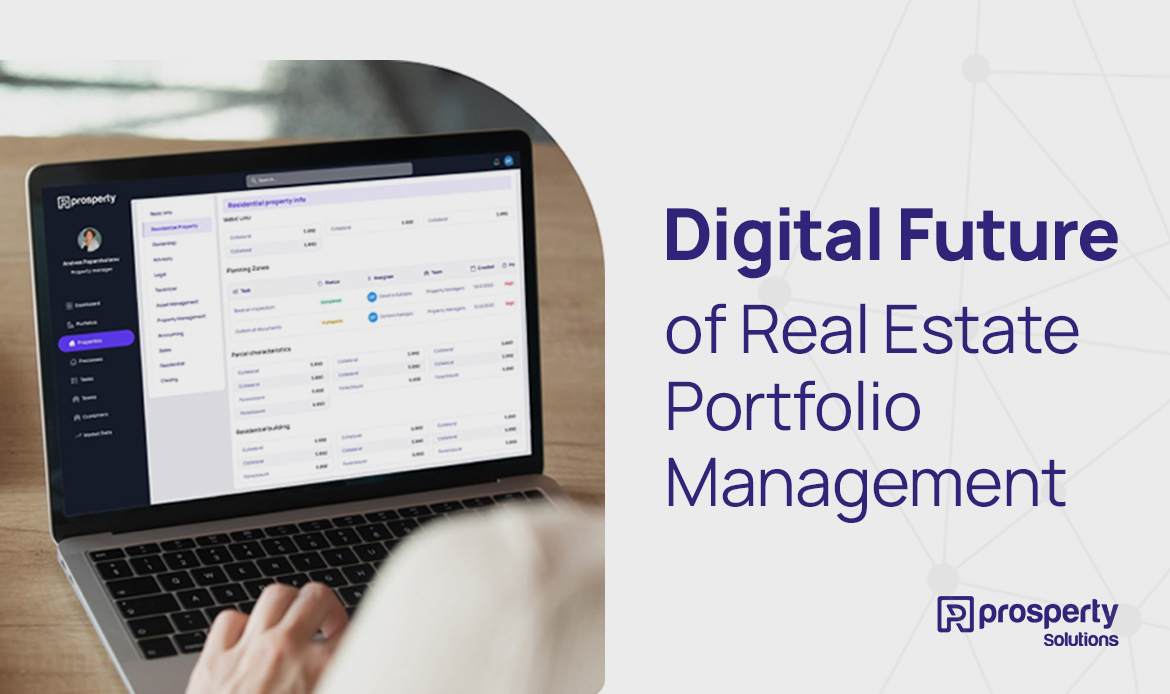In the constantly evolving global real estate landscape, characterized by stability and renewed growth, institutional investors and specialized real estate service operators face a unique set of challenges and opportunities. The recent investment grade upgrades in various economies underscore the potential for substantial returns, but the complexities of the real estate market demand innovative solutions. Amidst these dynamics, the unequivocal trajectory for the future of institutional real estate portfolio management lies in embracing digital innovation.
Professionals in this sector grapple with challenges such as navigating bureaucratic hurdles, coordinating with diverse service providers and authorities, and managing extensive networks of stakeholders. Simultaneously, they must deliver high-quality services at scale while achieving ambitious business plan targets for asset management and commercialization.
To meet these evolving needs, a rapid shift towards digital transformation is essential. Digitization streamlines operations enhances coordination among stakeholders, reduces costs, and improves service quality, ultimately leading to better results and increased returns on investments.
Navigating Complexity: Key Challenges in Institutional Real Estate Portfolio Management
The primary challenges faced by institutional real estate investors and operators, which resonate globally, can be summarized as follows:
- Data Quality: The quality of property portfolio data and market data poses a significant challenge internationally. Incomplete or fragmented data makes it difficult to gain a comprehensive understanding of the true state of portfolios. The absence of reliable market data sources and inconsistencies in data quality further compound this issue, leading to inaccurate estimates and suboptimal strategic decisions.
- Operational Inefficiency: Many tasks are still performed manually or with outdated tools, resulting in operational inefficiencies globally. Coordinating actions among multiple parties involved in asset and property management is time-consuming, hindering the speed of implementation and overall performance.
- Portfolio Size & Complexity: Managing vast and complex portfolios with thousands of diverse properties scattered across different regions becomes increasingly challenging on an international scale. Handling requests, coordinating brokers, ensuring physical inspections, and managing securitizations become exponentially complex as portfolio size grows, carrying the risk of failures.
Empowering Excellence: The Realm of Digital-Enabled Ecosystems
Digital platforms, exemplified by advanced solutions like ProspertyOS (Operating System) for Institutional Portfolio Management, offer comprehensive ecosystems designed to address these complex challenges and streamline real estate portfolio management globally.
One key advantage of such platforms is their ability to aggregate and consolidate data from various types of properties, diverse portfolio origins, and multiple locations worldwide. Real-time market data from various sources can also be integrated, enabling data cleansing and normalization. This consolidation and centralization ensure asset information completeness and accuracy, empowering real estate managers to make informed decisions.
Workflow automation is another critical feature, optimizing daily tasks like data entry and report generation. This not only reduces errors but also saves significant time for users and operators. Digital dashboards provide real-time insights into property status and process stages, simplifying cost-performance monitoring.
Cloud-based collaboration allows all stakeholders to work remotely and asynchronously while coordinating various actions globally. Interconnecting different applications through APIs facilitates real-time synchronization, creating a unified property image.
Comprehensive digital promotion tools, driven by AI, mark a paradigm shift in institutional real estate portfolio management. These tools go beyond traditional marketing by employing advanced algorithms to precisely target potential investors or tenants. Through machine learning, they analyze historical data and market trends, ensuring tailored strategies that resonate with specific audiences. What sets these tools apart is their ability to seamlessly coordinate with brokers and stakeholders, streamlining the entire process from inquiry to service delivery. This not only enhances efficiency but also ensures a consistent and high-quality experience for clients, positioning real estate professionals at the forefront of innovation in the global market.
Real estate managers who strategically invest in cutting-edge digital asset management and commercialization tools stand ready to flourish in the ever-changing landscape of institutional real estate portfolio management globally. By embracing digital solutions, these professionals not only address current challenges but also position themselves to capitalize on opportunities presented by the dynamic real estate market worldwide. Undeniably, the future of institutional real estate portfolio management is rooted in digital innovation, and those who embrace this transformation will pave the way for a more efficient and prosperous era in the industry on a global scale.


